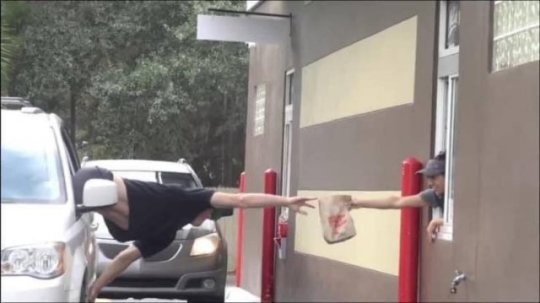My name is Brendon and I’m an archaeologist who likes music
Don't wanna be here? Send us removal request.
Text


King Lear performed in the fire-damaged ruins of Teatro Municipal de Lima (c. 1999), conceived by architect Luis de Longhi
16K notes
·
View notes
Text

Joan Didion, writing about the shock that followed after the death of her husband, John.
4K notes
·
View notes
Text
"Be that as it may, Tereza continued on her path, and, watching her heifers rub against one another, she thought what nice animals they were. Calm, guileless, and sometimes childishly animated, they looked like fat fifty-year-olds pretending they were fourteen. There was nothing more touching than cows at play. Tereza took pleasure in their antics and could not help thinking (it is an idea that kept coming back to her during her two years in the country) that man is as much a parasite on the cow as the tapeworm is on man: We have sucked their udders like leeches. Man the cow parasite is probably how non-man defines man in his zoology books.
Now, we may treat this definition as a joke and dismiss it with a condescending laugh. But since Tereza took it seriously, she found herself in a precarious position: her ideas were dangerous and distanced her from the rest of mankind. Even though Genesis says that God gave man dominion over all animals, we can also construe it to mean that He merely entrusted them to man's care. Man was not the planet's master, merely its administrator, and therefore eventually responsible for his administration. Descartes took a decisive step forward: he made man maitre et proprietaire de la nature. And surely there is a deep connection between that step and the fact that he was also the one who point-blank denied animals a soul. Man is master and proprietor, says Descartes, whereas the beast is merely an automaton, an animated machine, a machina animata. When an animal laments, it is not a lament; it is merely the rasp of a poorly functioning mechanism. When a wagon wheel grates, the wagon is not in pain; it simply needs oiling. Thus, we have no reason to grieve for a dog being carved up alive in the laboratory.
[. . .]
True human goodness, in all its purity and freedom, can come to the fore only when its recipient has no power. Mankind's true moral test, its fundamental test (which lies deeply buried from view), consists of its attitude towards those who are at its mercy: animals. And in this respect mankind has suffered a fundamental debacle, a debacle so fundamental that all others stem from it.
One of the heifers had made friends with Tereza. The heifer would stop and stare at her with her big brown eyes. Tereza knew her. She called her Marketa. She would have been happy to give all her heifers names, but she was unable to. There were too many of them. Not so long before, forty years or so, all the cows in the village had names. (And if having a name is a sign of having a soul, I can say that they had souls despite Descartes.) But then the villages were turned into a large collective factory, and the cows began spending all their lives in the five square feet set aside for them in their cow sheds. From that time on, they have had no names and become mere machinae animate. The world has proved Descartes correct.
Tereza keeps appearing before my eyes. I see her sitting on the stump petting Karenin's head and ruminating on mankind's debacles. Another image comes to mind: Nietzsche leaving his hotel in Turin. Seeing a horse and a coachman beating it with a whip, Nietzsche went up to the horse and, before the coachman's very eyes, put his arms around the horse's neck and burst into tears.
That took place in 1889, when Nietzsche, too, had removed himself from the world of people. In other words, it was at the time when his mental illness had just erupted. But for that very reason I feel his gesture has broad implications:
Nietzsche was trying to apologize to the horse of Descartes. His lunacy (that is, his final break with mankind) began at the very moment he burst into tears over the horse.
And that is the Nietzsche I love, just as I love Tereza with the mortally ill dog resting his head in her lap. I see them one next to the other: both stepping down from the road along which mankind, the master and proprietor of nature, marches onward."
-Milan Kundera, The Unbearable Lightness of Being
4 notes
·
View notes
Photo

Manhattan Island Prison, from “Escape From New York”, set in a dystopian 1997
457 notes
·
View notes
Photo






Them Crooked Vultures in New Zealand, 2010.
10K notes
·
View notes
Photo

mood: slowdive chilling in a graveyard
14K notes
·
View notes
Audio
4K notes
·
View notes
Text
-Marx, 1867
girlies i think i’m actually delusional…or maybe i’m enlightened 🤨
12K notes
·
View notes
Audio
My Bloody Valentine // Never Say Goodbye
151 notes
·
View notes
Photo










“True Stories” (1986) - David Byrne
1K notes
·
View notes









